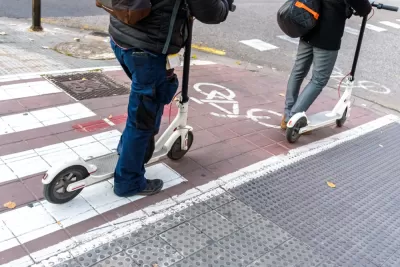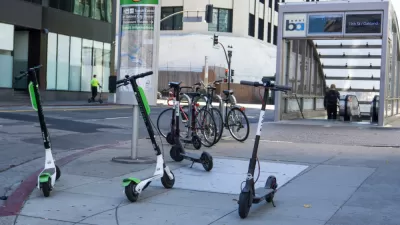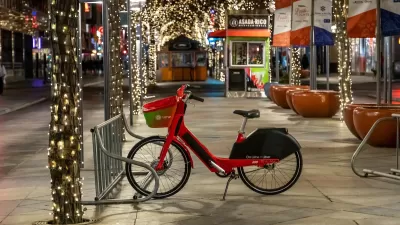Operators are pushing back against new proposed rules that some say could 'kneecap' the District's micromobility industry.

As the District of Columbia's Department of Transportation plans to cap the number of scooter and bike share operators in the District and implement a series of new regulations, Kea Wilson reports that some advocates wonder "why micromobility providers are again being held to higher standards than are drivers, automakers, and car-related businesses." In an open letter to DDOT, the District's current micromobility operators argue that the new rules could push them out of the market just as demand for their services surges.
Under the new process, companies would be assessed on a 198-point rubric that gauges the companies’ commitment to safety, equitable access, and fair labor practices, among a list of other sky-high standards that some argue would more logically apply to car-based enterprises.
App-taxi operators such as Uber do not have to pass such extensive tests in order to operate on Washington roads and can deploy as many drivers as they wish, despite such companies’ record of contributing to congestion, harmful emissions, and more. Private vehicle owners can also register as many vehicles as they like throughout the U.S. provided they meet safety and emissions requirements.
The operators "already comply with a raft of city policies, including fleets caps of 820 to 2,500 vehicles," and want DDOT "to extend the current micromobility permits for an additional year."
FULL STORY: How D.C. Might Kneecap Its Micromobility Revolution

Study: Maui’s Plan to Convert Vacation Rentals to Long-Term Housing Could Cause Nearly $1 Billion Economic Loss
The plan would reduce visitor accommodation by 25,% resulting in 1,900 jobs lost.

North Texas Transit Leaders Tout Benefits of TOD for Growing Region
At a summit focused on transit-oriented development, policymakers discussed how North Texas’ expanded light rail system can serve as a tool for economic growth.

Using Old Oil and Gas Wells for Green Energy Storage
Penn State researchers have found that repurposing abandoned oil and gas wells for geothermal-assisted compressed-air energy storage can boost efficiency, reduce environmental risks, and support clean energy and job transitions.

Private Donations Propel Early Restoration of Palisades Playground
Los Angeles has secured over $1.3 million in private funding to restore the Pacific Palisades playground months ahead of schedule, creating a modern, accessible space that supports community healing after recent wildfires.

From Blight to Benefit: Early Results From California’s Equitable Cleanup Program
The Equitable Community Revitalization Grant (ECRG) program is reshaping brownfield redevelopment by prioritizing projects in low-income and environmental justice communities, emphasizing equity, transparency, and community benefits.

Planting Relief: Tackling Las Vegas Heat One Tree at a Time
Nevada Plants, a Las Vegas-based nonprofit, is combating the city’s extreme urban heat by giving away trees to residents in underserved neighborhoods, promoting shade, sustainability, and community health.
Urban Design for Planners 1: Software Tools
This six-course series explores essential urban design concepts using open source software and equips planners with the tools they need to participate fully in the urban design process.
Planning for Universal Design
Learn the tools for implementing Universal Design in planning regulations.
Ascent Environmental
Borough of Carlisle
Institute for Housing and Urban Development Studies (IHS)
City of Grandview
Harvard GSD Executive Education
Toledo-Lucas County Plan Commissions
Salt Lake City
NYU Wagner Graduate School of Public Service





























